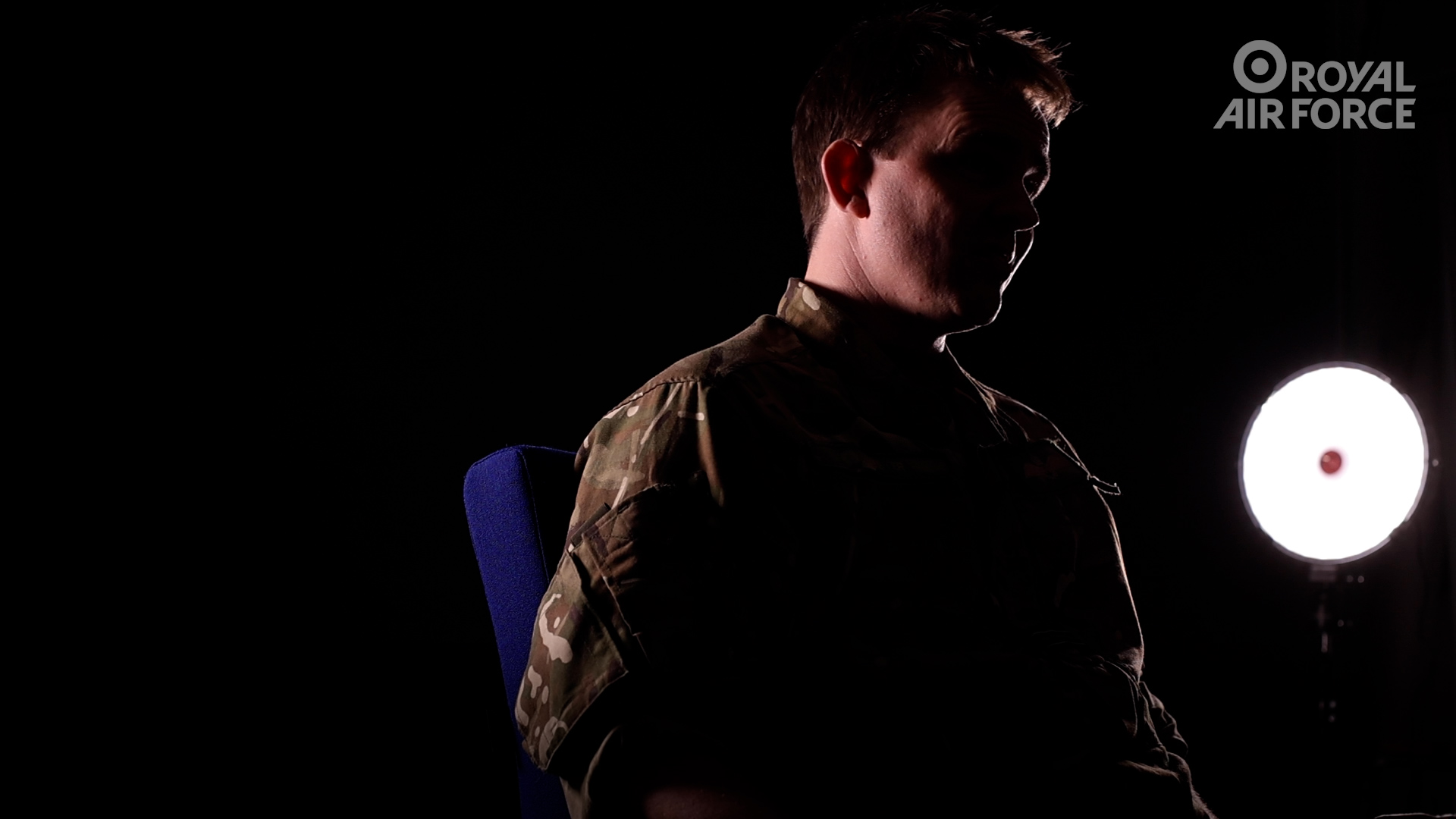
This is a personal account of my journey through sound-sensitivity and tinnitus. I have no audiology credentials but hope this account may help to reassure others that are affected by sound sensitivity and tinnitus. Flt Lt Webster.
(This account of Flt Lt Webster's journey, is also available as a YouTube video).
For me, a mild form of intrusive tinnitus and sound-sensitivity arrived 7 years ago. Thankfully I have been free from sensitivity for about 6 years but, until habituating last year, I was almost continually aware of and troubled by, tinnitus. I hardly think about it now though.
I first noticed a small amount of intermittent tinnitus in my right ear while in a quiet room, and this gradually became more persistent after a week. I am vigilant about medical issues because of my occupation as a helicopter pilot, and I was particularly concerned here as I understood tinnitus to be incurable.
I saw the doctor who said my ears were full of wax and needed irrigating. I was given ear drops and told to return in a few days.
The drops turned the wax into a sludge that felt weird and made hearing difficult, I unwisely used cotton buds to remove some of it. This irritated my ear canals, so when I returned to get my ears irrigated on a Friday, I was told that I needed to wait until Monday for the irritation to settle down.
If I had to pin-down a specific event which led to tinnitus taking hold; it was this weekend spent ruminating over what I had done and hearing little else but tinnitus due to the waxy sludge. The thought that I had done something to help tinnitus take hold was something I often dwelt on later.
I had some big stressors at the time; a pregnant wife, moving house, debt, and a stressful flying instructor course that I had just started. I suspect these factors fuelled my negative reaction to tinnitus and helped it to take root, which ultimately meant that it took longer for me to habituate. My reaction needn’t have been so strong.
The irrigation was professionally conducted and uneventful, removing lots of wax. Afterwards all seemed normal, I could still hear my tinnitus, but much quieter, likely because external sounds could now get through.
The irrigation was for some time another source of distress, it was after this that sound sensitivity emerged. Some ill-informed online research pointed the finger at irrigation as the source. It was only after the mechanism behind sound sensitivity was eventually explained, I accepted that it wasn’t to blame.
It was tempting to apportion blame but it would only have made things worse and would probably have slowed my progress towards habituation.
While my attention was still strongly drawn by tinnitus, sound sensitivity was worse. I found fairly modest levels of noise difficult to tolerate, such as in bars or when driving.
I struggled through my flying instructor course, but it was a miserable time. Flying was conducted in a relatively quiet aircraft and the sorties were short, but even then it was a struggle. After flying, my ears would buzz for the rest of the day, although there was usually a ‘reset’ after a night’s sleep.
The symptoms steadily got worse, but withdrawing from the course would likely have meant returning months later and leaving my wife for extended periods with a new baby. That was if I recovered, of which I was becoming uncertain.
I passed the final flight, which was lucky as after it I couldn’t have flown for 2 weeks due to the discomfort. The next day I had to stop 3 times during the drive home due to the pain.
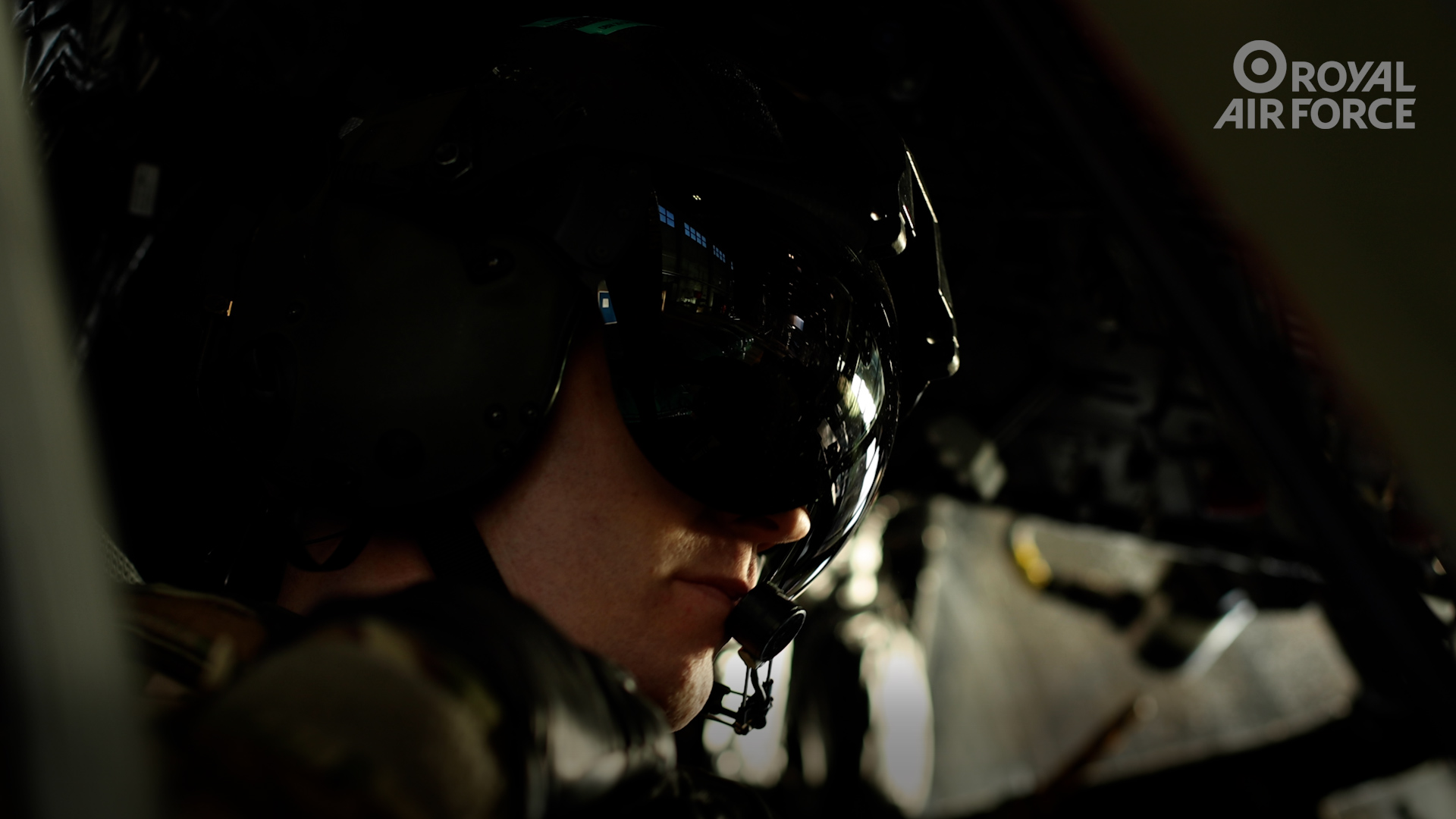
With my tinnitus I experience two distinct sounds. The first is a steady tone, but the second is more changeable; a mix of hissing, clicking and swooshing that is difficult to describe. The level of noise is variable, ranging from the faintly audible to the level of a noisy refrigerator. I would always hear my tinnitus, even in fairly loud surroundings, in a similar way to how one’s name can be picked-out among the noise of a busy bar.
I developed the habit of using an ear plug in my worse ear, but this probably only served to maintain the sensitivity. I’d start long car journeys without any ear plugs, after a spell on the motorway my tinnitus would increase, necessitating, or so I thought ear plugs. I would set-off with barely perceptible tinnitus but arrive two hours later in discomfort with loud hissing in both ears.
Pilots are often reluctant to see doctors for fear of being ‘grounded,’ and I was no exception. With my instructor course complete I returned to my familiar but louder aircraft and hoped for the best. I lasted a few trips before I inevitably had to stop, at which point I saw the doctor again.
This was a difficult time. Our first baby had arrived and there was a question over my continued employment, as well as my future quality of life. I made another mistake by browsing the internet. It was depressing to read about people battling these issues for many years, seemingly without hope of improvement. I had some dark thoughts. I never seriously considered harming myself, particularly with a baby to look after, but I did wonder what I might do if things continued to get worse.
Having previously had good health, I took it for granted and this was a shock. A broken leg is traumatic and invites sympathy, and progress is obvious and easy to forecast. This wasn’t the case with tinnitus and sound sensitivity, or so I thought. I felt quite alone.
I once read that psychopaths have a blunted sense of empathy, and I concluded that a large fraction of my peers were, if not psychopaths, then something similar. Why else would my problems be a source of amusement?
This was wrong however, and I realised this ill-judged banter came only from ignorance, I hadn’t even heard of sound sensitivity until I had it. These well-adjusted people wouldn’t find my problems that funny if they had a better understanding. But even when they did it didn’t make life easier.
I’ve often thought sound-sensitivity and tinnitus are like children; you don’t really understand unless you actually have them. Perhaps this is why tinnitus sufferers and new parents can both instantly find common ground.
On overseas detachments we would sometimes pass time playing rounds of ‘would you rather,’ where someone must decide between two, usually ridiculous and revolting hypothetical options. In a similar way I now found myself wondering, if the option were available, what body-part(s) I would sacrifice to be rid of my ear problems. I concluded my dominant hand plus most of the arm. Probably not a leg. Possibly an eye. Tinnitus and sound sensitivity are not trivial.
I was pretty desperate and my emotional stability was shaky. If another stress factor had arrived then I wouldn’t have been able to cope. I’m not known for being emotional, but I broke down on a very bad day and my pregnant wife walked in. This wasn’t a quiet little cry but an uncontrollable bawling that made it difficult to breathe. I got a Bible out at one point, I’m an atheist. I often woke up hoping to find that it had all been a dream, then the pain and ringing would start.
I paid for specialist consultations and a brain-scan as I thought private medical care would be superior to the military system. This might be true in some cases, but it wasn’t in mine. At one point I was told there wasn’t much that could be done. Incorrect prognoses like these cause distress and can help tinnitus take hold.
One bad experience aside, the military system was very good, and I eventually found my way to a Defence audiologist who has been nothing short of a saint.
I didn’t have high hopes before seeing her, but I was willing to explore any avenue. I had been suffering for about a year and things had steadily got worse. For perspective; I struggled with the noise of our baby, covering my ears when he screamed, not easy while changing a nappy, and a fire alarm at work once left me in pain for a week.
A year-in and with seemingly little hope of improvement, life was looking bleak, but that was soon to change.
On the day of the appointment my tinnitus was bad, I used ear defenders and pain killers to manage the 2-hour drive. The Defence audiologist, Mary, explained how I had become sensitised to sound and how tinnitus had taken hold. She had seen many similar cases and detailed the pathway to recovery. Mary explained that sound sensitivity would likely be under control relatively soon and that habituation was also very likely. She couldn’t however, for good reasons give definite timescales.
By the end of the session however, my tinnitus had almost disappeared, and sound sensitivity had gone. I was able to discard the ear defenders for the return journey and listen to music for the first time in a year. Sensitivity did return a few days later, but not to same degree, and it disappeared almost entirely after the second appointment.
This was a huge step forward; I was able to resume flying duties and return to something that resembled normality.
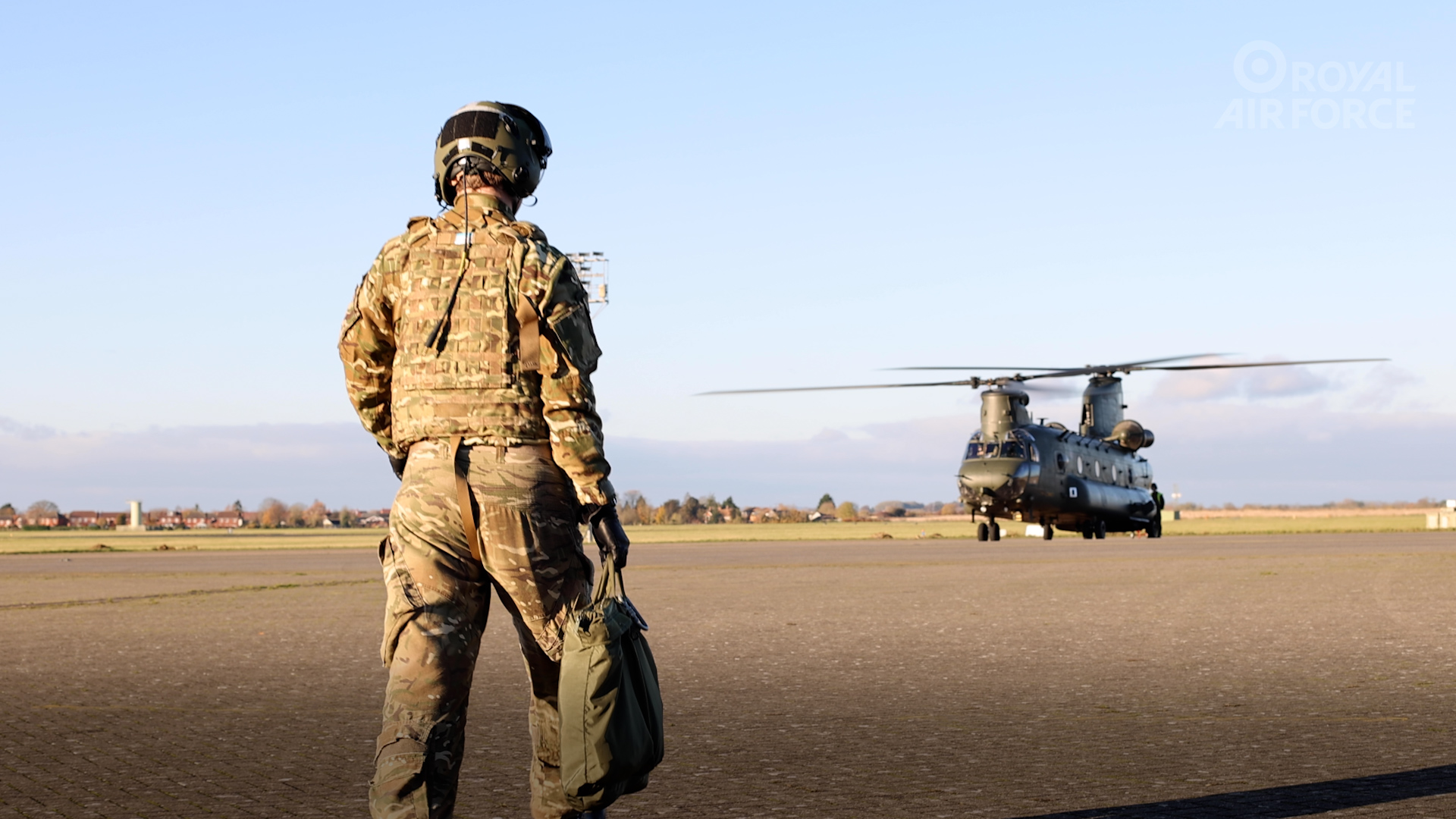
Mary explained that Habituation to tinnitus tended to take much longer, although not always. It had taken me about a year to start getting the right treatment, had I started straight away, I suspect my recovery would have been much faster.
The best analogy I have for recovery is that of a train journey. On this journey the speed of the train is unknown, anything from a bullet train to a branch-line service. The train may also stop randomly every so often. Despite this, you still pass each station in turn and arrive at the final destination, provided you stay on the train. Timings can only be guessed at, but there are no other trains to take. Getting exasperated about the rate of progress won’t help either.
Knowing that a good outcome was very likely at the start of my suffering would have reduced my anxiety and made my problems easier to bear, even if the journey was going to be a long one. That said, I managed to board my train when I turned up at Mary’s office, and I stayed on it. Reading this means that you may also on your train. Be patient.
I was still dubious about ‘habituation’ and thought it was just a medical way of saying ‘learning to cope with it,’ but I didn’t just want to cope, I wanted to thrive.
I asked Mary a number of times if she thought tinnitus would disappear completely. She couldn’t be sure. It was only after I habituated, I realised that this wasn’t a particularly important point. It’s the reaction to the noise that counts, not so much the noise itself. It took me 4 years to understand that.
I had appointments every 6-8 weeks and tinnitus was usually worse on these days. Mary explained that this was from a heightened awareness of tinnitus due to the appointments. After each session tinnitus would die down for 1-5 days. It often reduced significantly while in her office, but sometimes it didn’t, although it was almost always diminished on waking up the day after. I lived for these ‘oases’ from tinnitus, particularly at the beginning, in a pattern that lasted about 4 years.
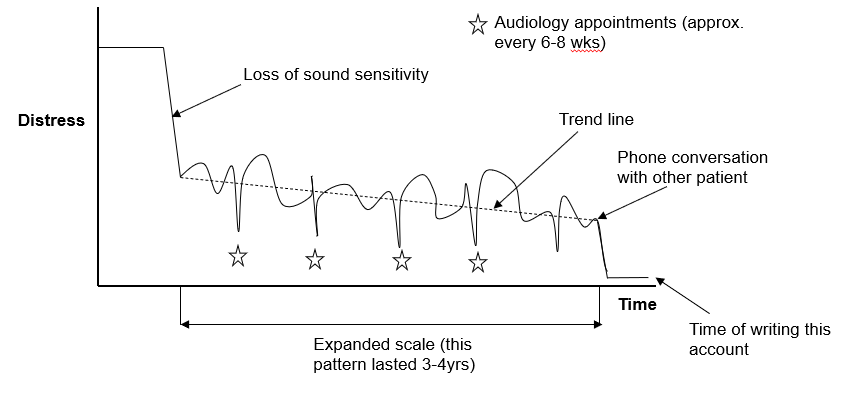
At the appointments I almost always asked the same questions. “So…you definitely think habituation will happen? How long does it normally take? Will the sound die away as well as my reaction? I know you can’t say much about your other patients…but how do I compare to your other patients? I’m on a good trajectory…aren’t I? Have you ever had a patient who didn’t habituate? It’s…it’s going to be ok, isn’t it?” Etc etc.
While the sessions must have been repetitive for Mary, her reinforcement that habitation was the (very) likely outcome must have been slowly chipping away at my tinnitus reaction.
Progress was difficult to measure, and I often thought that tinnitus was simply my new normal. Progress was however occurring, documented in yearly audiology questionnaires that Mary gave me. They showed that tinnitus was, very slowly, having a reduced impact on my life, but I still wondered what the end state would be.
The random nature of my tinnitus didn’t help. Each day the level was usually determined in the first few moments after waking up. I couldn’t avoid seeking-out the noise the instant I awoke. Mary explained this as the brain’s ‘systems-check’; an evolved mechanism to rapidly scan for threats, and to fight or flee if needed. Tinnitus is simply a known ‘threat’ that the brain scans for, and it was the same with sound-sensitivity, which often led to some pain on waking-up. Aside from this, tinnitus didn’t seem to follow any obvious patterns for me, outside of a loose relationship with stress.
Quiet rooms were difficult, I used nature-noises on my phone, particularly at night. I also developed a taste for the music of Jean Michelle Jarre as it has a fairly constant level of sound, unlike most other music which has louder and also quieter spells, where I would notice tinnitus. I listened to it quietly at my desk, despite it drawing some attention initially, people got used to it.
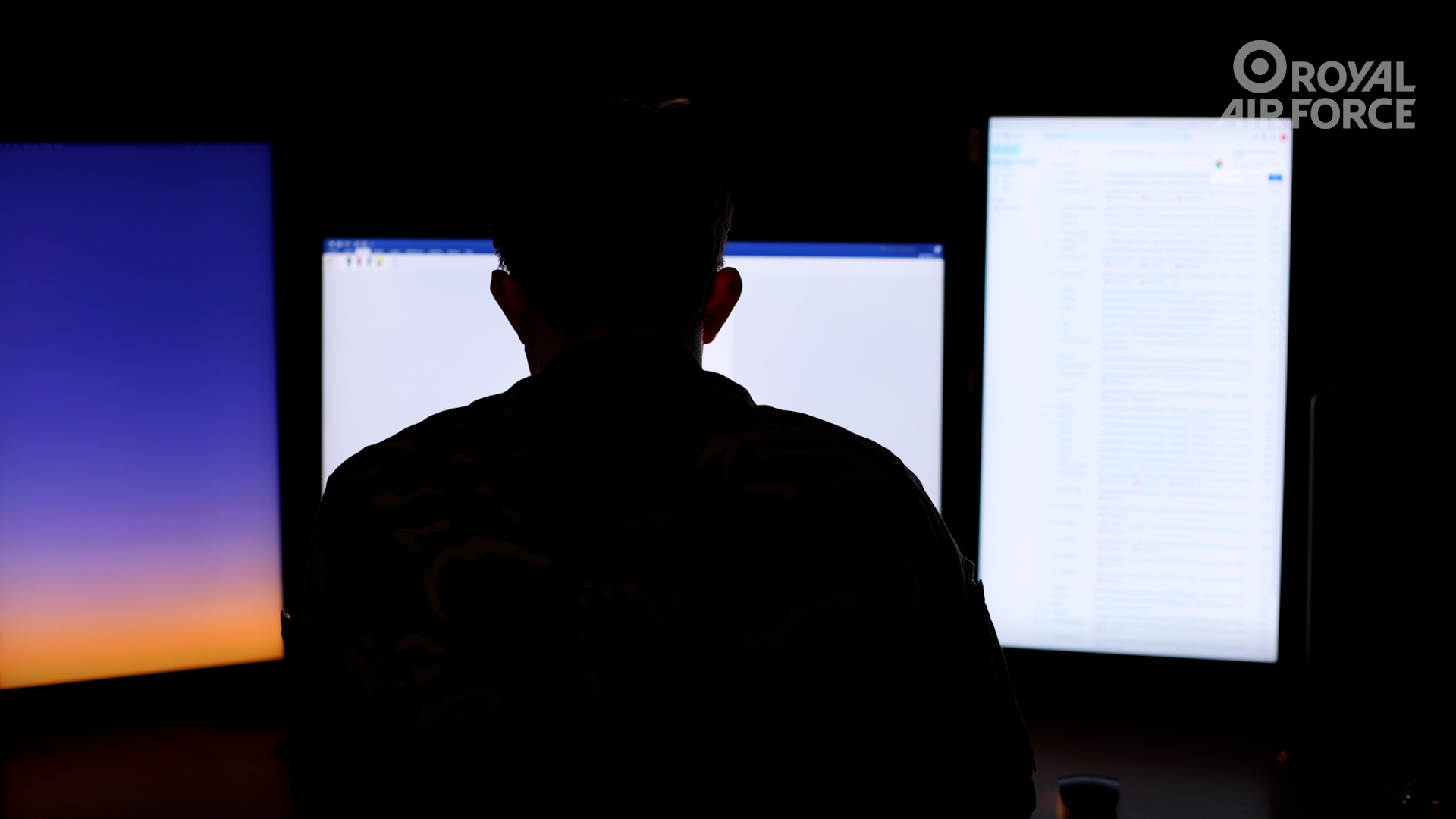
I still use nature sounds as a comfort-blanket, and my wife often asks me when I will stop. I don’t know. Some habits are hard to break, but at least it’s a habit now, and not a necessity.
I disliked putting on my flying helmet as, isolated from outside noise, all I could hear was my tinnitus. This was especially the case after flying as tinnitus was always worse, and I usually rushed to take my helmet off.
I explored meditation which helped a bit, and some breathing exercises, which were also quite effective. I also took comfort (and still do) in learning more about Stoicism and can recommend ‘A Guide To The Good Life’ by William B Irvine, which I have read several times.
A turning point came when Mary directed me to speak to another patient who had experienced habituation. This other patient thought I was also close to habituating because of some things I was saying, I’m not sure what. During our conversation, tinnitus died down.
I’d already had some ‘false dawns,’ so I was only cautiously optimistic, but this felt different; my reaction had reduced, and tinnitus now felt like something I was observing rather than experiencing.
That was about a year ago, while I still have some tinnitus, it is far less intrusive. Occasionally it can still be relatively loud, but my reaction is a fraction of what it was.
I still think about tinnitus quite regularly, although I suspect there will come a time when I don’t think about it from one day to the next. I’m not there yet but I’ve been close a few times, which isn’t bad given that I barely went a few minutes without thinking about it for 5 years.
My problems started when my wife was pregnant and finally passed when my son stood as tall as my waist, but it needn’t have taken that long. An early referral to the audiologist would have helped, giving the negative associations with tinnitus and sound sensitivity less time to consolidate. Accepting that habituation was the likely outcome would have assisted; you don’t mind so much being on a slower train if you are sure of the destination. My recovery was impacted by the Coronavirus pandemic, which I think may have lengthened it.
I hope this account offers help to others and makes the journey to recovery a bit quicker and smoother.









